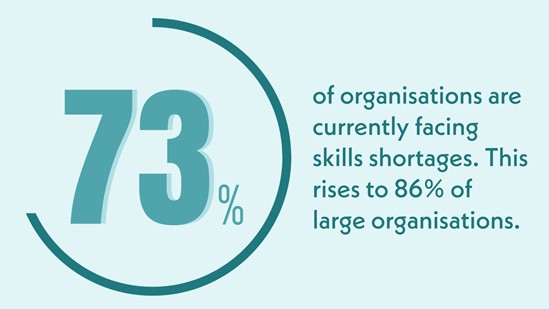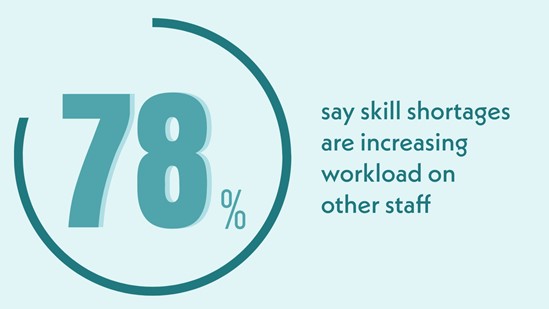Businesses Facing Skills Shortages


A survey conducted at The Open University found that employers in the UK are facing a prolonged period of skills shortages due to factors such as the Covid-19 pandemic, the UK's withdrawal from the European Union, and spiralling inflation caused by supply chain, energy, and wage costs. These issues have led to numerous job vacancies and unprecedented recruitment difficulties.
Employers are facing mass skills shortages due to economic shocks since 2020, including changes in migration patterns, long-term sickness, and early retirement. It is vital that businesses work alongside the government and training providers so we can eradicate the skills shortages all companies are facing. A lack within the talent pool is severely impacting profitability and staff morale.
Employee training and development are vital for solving the skills shortage. It enhances skills, engagement, and productivity, enables in-work progression, and supports staff retention. Certain sectors, including care, education, healthcare, customer service and accounting, are currently facing huge skills gaps. Workplace training and development plays a crucial role in overcoming skills shortages by enhancing the skills, engagement, and productivity of employees, enabling in-work progression to higher-skilled roles, and supporting staff retention. It is crucial that the skills system has the agility and flexibility to meet these training needs as the workplace evolves.
Eliminate the skills gap in your workforce by taking advantage of funding opportunities and tax allowances. The apprenticeship Levy can reduce the cost of apprenticeship training for SMEs by 95%. Apprenticeships are available to all age groups and can be used to support the training of your existing workforce. Invest in training and development for leaders and teams across the organisation to fill skills gaps, boost productivity, engage your workforce, and improve retention.
Coventry and Warwickshire Chamber of Commerce Training can help you identify your organisation's training needs, choose the appropriate apprenticeship, and agree on a package and price that suits you. We will also ensure that you have a clear understanding of incentives when you apply.
*78% say skills shortages are increasing the workload on other staff
*52% say there is a reduction in activity or output
*72% of organisations say skills shortages have increased the workload on existing staff
(Data source: The Open University Business Barometer June 2023 An analysis of the UK skills landscape.)



